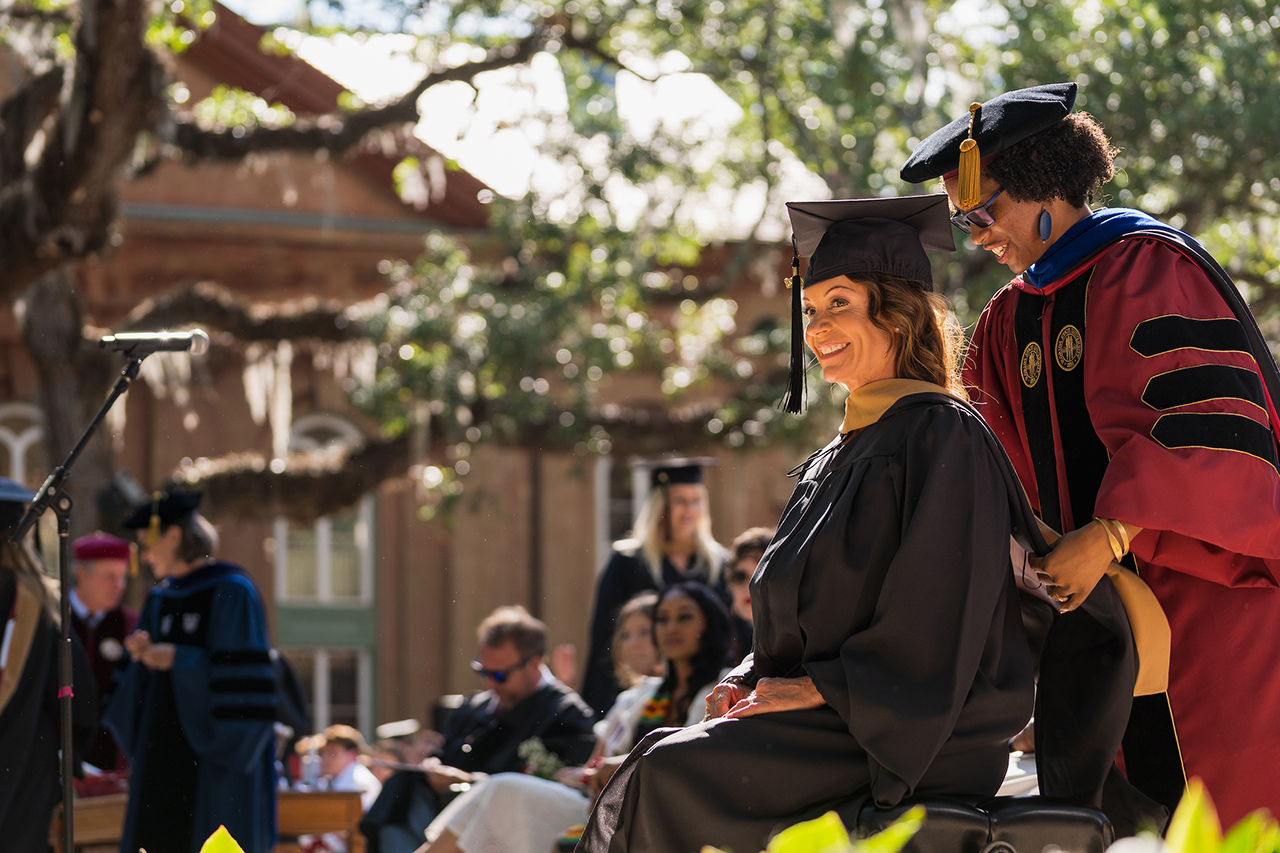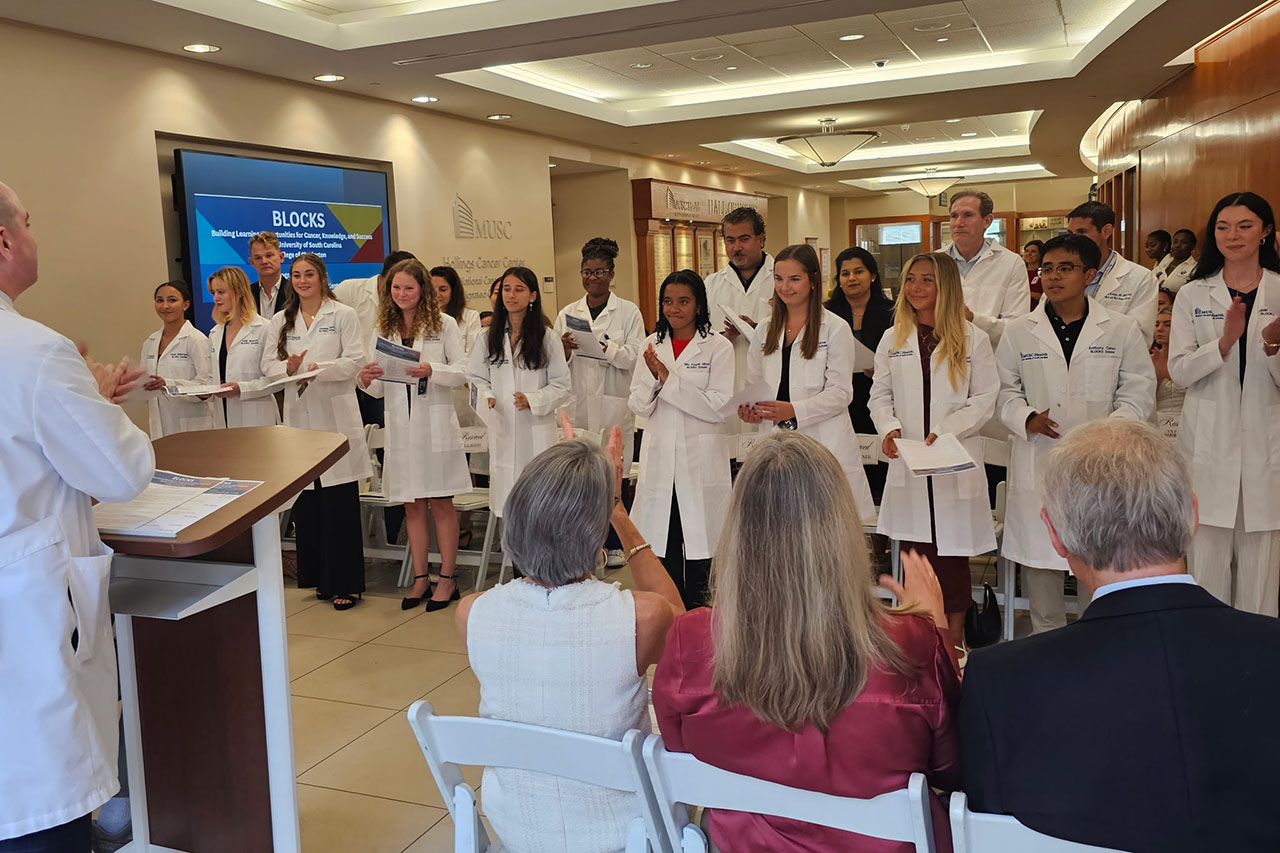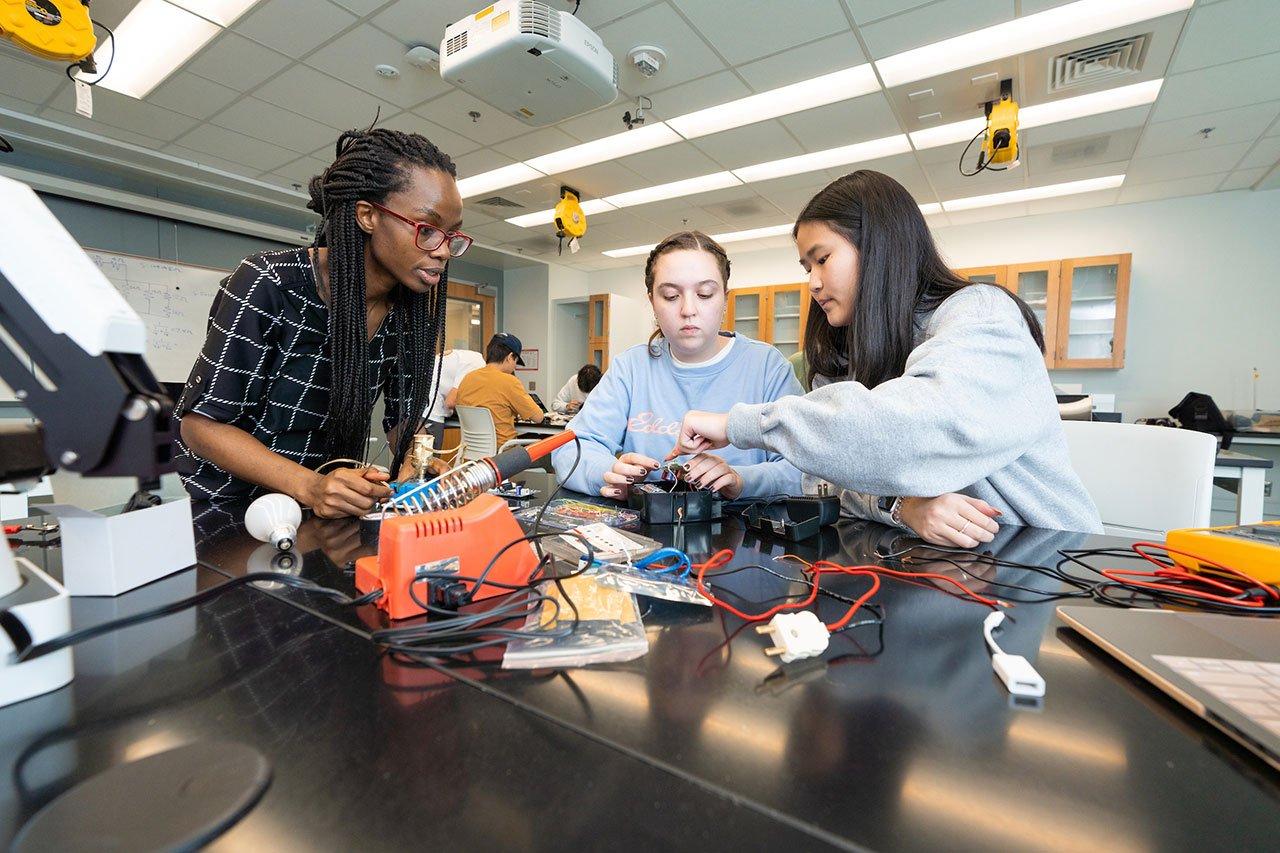It's Only Logical: Why Future Lawyer Chose to Major in Philosophy
With aspirations of becoming a lawyer, Lily Kirkland decided that it just made sense to study a field that encourages thinking for yourself.

Photos by Priscilla Thomas
Lily Kirkland knew she would major in philosophy. With aspirations of becoming a lawyer, it just made sense to study a field that encourages thinking for yourself.
The summer before she came to the College of Charleston, Jonathan Neufeld, associate professor and chair of the Department of Philosophy, reached out and invited Kirkland for coffee – something he does with all declared philosophy majors.
“I was surprised and honored to be invited,” says Kirkland. “Professor Neufeld asked me who I had read and what I want to read. He took everything in and then assigned me an advisor. After my meeting, I knew I had come to the right place.”
The Honors College student has calculated every step she has taken at the College to achieve her end goal of law school – from her major in philosophy and minor in entrepreneurship to her participation in clubs.
“I have been very intentional about what I am doing,” explains the first-generation university student. “I want to make sure whatever I am doing serves my goals and is making an impact.”
Receiving scholarships was high on her list, as she knew scholarships would make attending university possible. She did the research, applied and received the Tomo Cook Scholarship and the Kanapaux-Magrath Scholarship.
Her second year, Kirkland saw an Honors College posting for an internship with the Medical University of South Carolina Zucker Institute for Innovation Commercialization. The nonprofit institute handles all intellectual property rights and patents for MUSC, which played into what Kirkland plans to focus on in law school.
What began as an internship has now developed into a long-term associate position.

With her passion for all things philosophy, it was only logical for Kirkland to assume to mantel of Philosophy Club president. For club discussions, she has introduced fun topics ranging from the philosophy of reality TV dating shows to the philosophy of time.
She also has been involved in Mock Trial since high school. At the College, she became a captain her sophomore year and now is president. As a team, the club spends months researching and preparing their case for the annual competition. Next February, the College will have two teams competing for the first time.
“Philosophy majors develop good critical and argumentative skills needed to make a case, making philosophy a logical major for aspiring lawyers,” says Nicolas Delon, assistant professor of philosophy and Kirkland’s bachelor’s essay advisor. “Lily excels at making her case.”
For her bachelor’s essay, Kirkland is focusing on Nietzsche’s view of suffering and how one can take hardship and make it a source of meaning and growth.
“Professor Delon has really helped me think about how I write and think,” she says. “He has also expanded my reading of Nietzsche. We have had quite a few discussions on his writings.”
Delon also wrote about Nietzsche for his senior thesis in college and, while his area of focus is animal ethics, he always has time for Nietzsche. He has found it refreshing to work with Kirkland on her essay and to have her in his classes.
“Lily is one of my best students; she is always very present,” says Delon. “She is one of the clearest writers I’ve ever encountered, which explains why she is such a good peer tutor of logic. She has a clear mind, and it shows.”

Kirkland also serves as the supplemental instructor for Symbolic Logic and a by-appointment tutor in the Center for Student Learning, roles she has held since her first year.
Kirkland was also inspired by the talk philosophy alumnus Mark Richards ’88 gave: “He said that you can pay someone to do anything for you, but you can never pay someone to think for you.”
Richards, who has founded more than a dozen companies, holds the same entrepreneurial spirit as Kirkland.
She is president of the Founders Club, which has facilitated the launch of a number of student-run businesses. Under the mentorship of David Wyman, professor and associate chair of management and marketing, the Founders Club is making an impact at the College. In addition to hosting speakers and collaborating on concepts, the club is involved in the AI Innovation Challenge, which includes awards for students thanks to donor Richard Maclean ’88; the 7×7 event, which features seven-minute pitches by seven entrepreneurs; and the Student Entrepreneur of the Year Award.
Wyman helped the Founders Club establish the Founders Scholars program, which has students apply to help run the club. The 10 students who are selected receive a monetary award from the Entrepreneurship Fund.
“Lily has been a go-getter from Day One,” says Wyman. “It has been amazing to see her growth since her first year at the College. She has developed into a true leader, who empowers others to follow her. Her ability to energize others has been key to the success of the clubs she leads.”
Kirkland has certainly achieved her goals and made an impact at the College. With the solid foundation she has built through her classes and clubs, she is primed and ready for law school.



